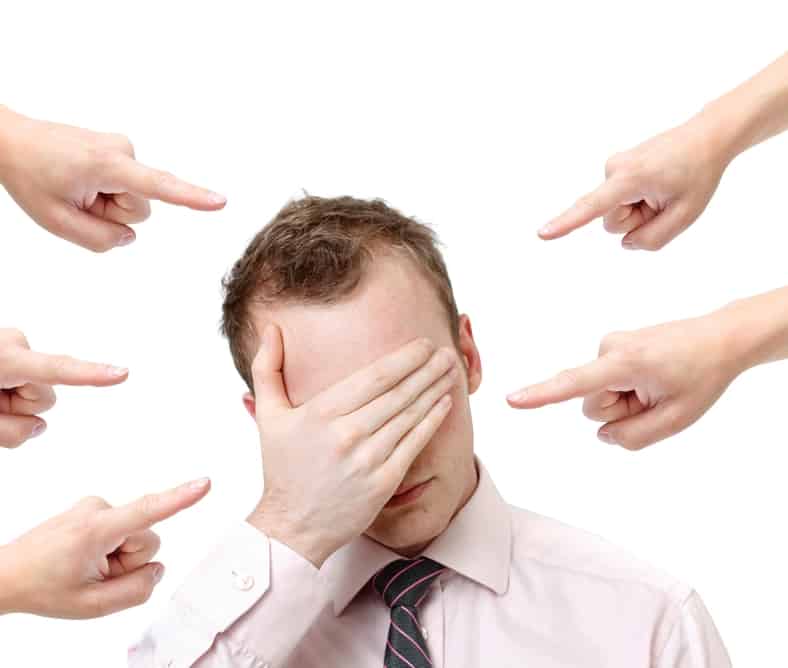The Shame Game – How it is Played
The Shame Game – it is a very real part of the recovery process. It is also a psychologically recognized mind game we have all been guilty of playing with ourselves at one point or another. Many mental health professionals believe shame is at the root of most psychological problems. Here’s how it works: we recognize some aspect of ourselves that we reject as “bad” or “unworthy” and we dwell on it. We then feel ashamed. This sense of shame gives us permission to feel bad about that part of ourselves. Then…. in a sort of self-fulfilling prophecy….we get to play into the part of ourselves we have deemed unworthy, which brings on more shame. This is how the cycle of addiction is able to continue unchecked for so many years. We use drugs. We feel ashamed for using drugs. What do we do? More drugs. Why? Because we’re ashamed of using drugs. Plus, when we are using drugs, we engage in “shameful” behavior, which makes us want to do more drugs to forget what we have done when we were doing drugs. Playing the Shame Game is exhausting!
What is Shame?
Shame is a painful emotion that accompanies thoughts and feelings of failure and inadequacy. When we have done something that represents less than our best, we feel ashamed of ourselves. When we think we have failed, shame is soon to follow. When we feel we have not met the standards society has set for us in terms of who we “should be,” we start playing the Shame Game. We feel ashamed when who we are doesn’t match up to who we wish we were. Shame contributes to depression, suicidal thoughts, low self-esteem, and an overall bummed out the quality of life. When we feel ashamed of ourselves, it affects every aspect of our lives. We are unable to enjoy our daily activities, we are unable to have healthy relationships with other people, and we are unable to unconditionally love ourselves for who we are – flaws and all.
The Shame of Addiction
Addiction takes us to some dark and dreadful places. Not a single person who has ever had an addiction to drugs, alcohol, or prescription medication arrives at their first 12-Step meeting without shame – not to mention secrets. This is how we begin to play the Shame Game with ourselves. We get clean. The fog begins to lift. We remember some of the things we did to maintain our addiction. Some of us stole from those closest to us to support our habit. We got high or drunk at work. We neglected our families to feed our addiction and lied to everyone around us. Indeed, we did some shameful things when we were under the influence of drugs or alcohol. Now, we don’t have drugs to numb the painful reality of who we have become and where our addiction has taken us. We feel ashamed. We blame ourselves. We despise what we have done, but we have no way to take it back. We are trapped within a reality of our own making. We are overwhelmed with shame and, of course, guilt. To make matters worse, we feel ashamed of being an addict or alcoholic, even if we are actively seeking recovery. We feel we have failed in some way. We feel this way because there is a stigma associated with recovery from addiction. Misinformed societal views typically demoralize addicts and label us as “bad” or “weak,” rather than seeing us as sick people trying to get well. We internalize the messages the world sends us and often shame ourselves for ever having addiction in the first place. Whether we are ashamed of the things we did in our addiction – or we are ashamed of the fact that we are addicts seeking recovery – the shame of addiction can be a constant companion. We continue to play the Shame Game by staying in a cycle that calls us to feel bad about who we are and ashamed of being an addict or alcoholic.
The 12-Steps – A Roadmap Towards Freedom from Shame
Getting clean is a process. Understanding the 12 Steps is a critical part of that process. Recovery typically begins with a detox program and inpatient treatment. Then, most people return to their lives after rehab and begin attending 12-Step meetings, get a sponsor, and start working the steps. The 12 Steps are where we find freedom from the shame of addiction. The 12 Steps offer a spiritual solution to the spiritual dilemma of addiction. By doing an honest inventory of ourselves and making amends for our wrongdoings, we are cleansed of the shameful thoughts and feelings we once had toward ourselves. Working through shame in recovery is an important part of the healing process. With time and work, we find inner peace, forgive ourselves, and learn to love ourselves for who we are – without shame. What is your experience with overcoming shame? Share your thoughts below.

